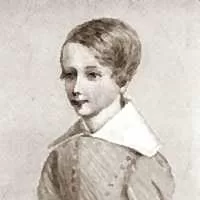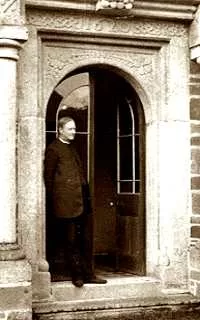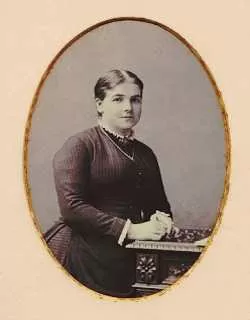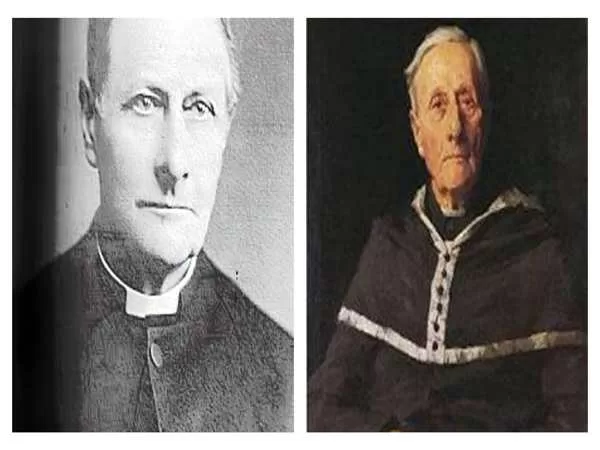Discover the Extraordinary Life of Reverend Sabine Baring-Gould: There was a time in England when the country clergyman was not just a man of God but also a man of many talents. From Anthony Trollope’s novels to real-life figures, these men were more than simple shepherds of their flocks—they were scholars, musicians, writers, and, in some cases, eccentric geniuses. Among them, one name stands out as a remarkable example of the English polymath: Reverend Sabine Baring-Gould.
A Life of Remarkable Beginnings
Born in 1834, Sabine Baring-Gould was destined for an unconventional life from the start. Named after his accomplished uncle, Edward Sabine, Sabine was a sickly child who spent much of his early years touring Europe with his family, educated by private tutors. This early exposure to different cultures and ideas perhaps set the stage for his later accomplishments. In 1852, he attended Cambridge, where he earned his BA and MA degrees. By 1864, he began his clerical career as a curate at St. John’s Church in Horbury Bridge, West Yorkshire, quickly becoming popular among his congregation, especially with the Sunday school children, to whom he told engaging stories.

In 1865, Baring-Gould penned the hymn “Onward, Christian Soldiers,” which remains one of the most well-known hymns to this day. He famously claimed to have written it in just 15 minutes and later expressed dissatisfaction with some of the lines. However, once Sir Arthur Sullivan of Gilbert and Sullivan fame set the hymn to music in 1871, it soared in popularity.
An Unlikely Love Story
Around 1866, Baring-Gould’s life took an unexpected turn when he met Grace Taylor, a mill worker’s daughter who had left school at the age of ten to support her family. Despite their vastly different backgrounds, the two fell in love. At just fourteen, Grace was sent by Baring-Gould’s bishop to live with relatives in York, where she was taught etiquette and the manners of a lady. Two years later, Grace returned home, and the couple married in Wakefield—she was sixteen, and he was thirty-four.
Their union shocked both families, who predicted disaster. However, the marriage thrived. In 1880, the couple moved to Lewtrenchard, Devon, after Baring-Gould inherited his family estate. By 1881, he appointed himself parson, becoming both the squire and parson of the 3,000-acre estate. Grace, the former mill girl, suddenly found herself managing a household staff of thirty servants.
A Clergyman Like No Other

Reverend Baring-Gould was a man who defied convention. He was a High Church Anglican during a period when it was unpopular, and he had a contentious relationship with his bishops. He was known to impose a strict ten-minute limit on his sermons; any curate who exceeded it risked having hymn books thrown at them by the impatient parson.
He was also famously absent-minded. On one occasion, he accidentally bought forty pounds of meat from a traveling butcher and had to host a grand dinner to avoid waste. Despite his eccentricities, Baring-Gould was deeply devoted to his parishioners, and his sermons were popular for their brevity and insight. His wife, Grace, often served as his grounding force, intercepting his hastily written angry letters and waiting until the following day to send them, giving him time to reconsider.
A Prolific Writer and Scholar
Baring-Gould’s true passion was writing. Over his lifetime, he produced an astounding 1,200 works, a record number of publications for any author represented in the British Library. His writings covered a wide range of topics, from a 16-volume series on the lives of the saints to books on geology, folklore, travel, and even novels. He collaborated with Cecil Sharp, a legendary figure in English folk music, to collect and preserve folk songs that might have otherwise been lost to history.
His diverse interests spanned numerous fields: he was an antiquarian, a historian, a geologist, a paleontologist, an archaeologist, an anthropologist, a hagiographer, a travel writer, a folklorist, a philosopher, a naturalist, and a practical joker. His wit was as sharp as his intellect; he would occasionally insert fictitious works into his bibliographies just for fun or use rubber bulbs under his dinner table to play tricks on guests.

A Remarkable Marriage and Legacy
Contrary to all expectations, Sabine and Grace’s marriage was filled with love and happiness. They had fifteen children, fourteen of whom survived into adulthood. Grace passed away in 1916 after 48 years of marriage, and Baring-Gould had the Latin phrase “Dimidium Animae Meae” (“Half my Soul”) inscribed on her tombstone—a poignant testament to their bond.
Baring-Gould lived for another eight years, passing away in 1924, just days before his ninetieth birthday. He left behind a legacy as one of the most prolific writers in British history, a man who embodied the spirit of a true polymath—constantly learning, creating, and challenging the status quo.
Why We Should Remember Baring-Gould Today
In today’s world, where specialization often trumps versatility, the life of Sabine Baring-Gould serves as a reminder of the value of curiosity, creativity, and the refusal to be defined by a single role or profession. His work in preserving folklore and music alone has had a lasting impact on English culture, while his life story continues to inspire those who believe in the power of diverse interests.
If you ever have time to spare, consider seeking out some of Baring-Gould’s works. Whether you are interested in history, folklore, or hymns, you will find a unique voice that speaks across the ages—a voice that reminds us that life is too short not to be lived fully, and with a sense of wonder.

